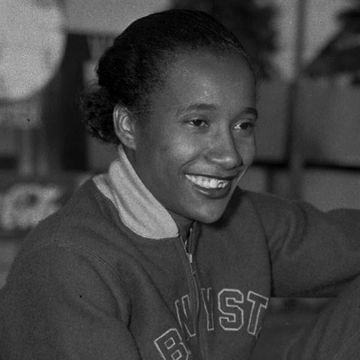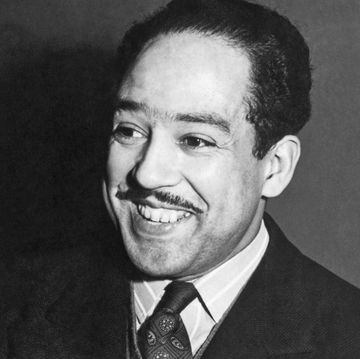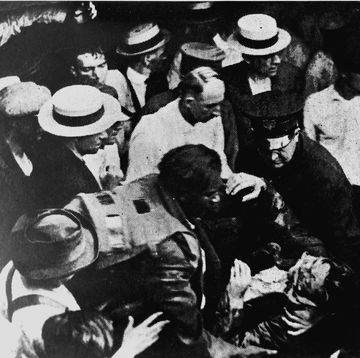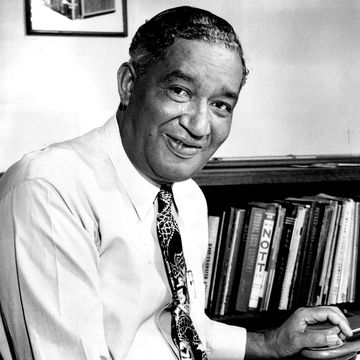(1940-1994)
Who Was Wilma Rudolph?
Wilma Rudolph was a sickly child who had to wear a brace on her left leg. She overcame her disabilities to compete in the 1956 Summer Olympic Games, and in 1960, she became the first American woman to win three gold medals in track and field at a single Olympics. Later in life, she formed the Wilma Rudolph Foundation to promote amateur athletics.
Quick Facts
FULL NAME: Wilma Glodean Rudolph
BORN: June 23, 1940
BIRTHPLACE: Saint Bethlehem, Clarksville, TN
DEATH: November 12, 1994
SPOUSE: Robert Eldridge (m. 1963-1980), William Ward (m. 1961-1963)
CHILDREN: Djuanna Eldridge, Yolanda Eldridge
ASTROLOGICAL SIGN: Cancer
Early Life
Rudolph was born prematurely on June 23, 1940, in St. Bethlehem, Tennessee, the 20th of 22 children born to dad Ed across his two marriages. She went on to become a pioneering African American track and field champion, but the road to victory was not an easy one for Rudolph. Stricken with double pneumonia, scarlet fever and polio as a child, she had problems with her left leg and had to wear a brace. It was with great determination and the help of physical therapy that she was able to overcome her disabilities.
My doctors told me I would never walk again. My mother told me I would. I believed my mother.
Growing up in the segregated South, Rudolph attended the all-Black Burt High School, where she played on the basketball team. A naturally gifted runner, she was soon recruited to train with Tennessee State University track coach Ed Temple.
Pioneering Olympic Medalist
Nicknamed "Skeeter" for her famous speed, Rudolph qualified for the 1956 Summer Olympic Games in Melbourne, Australia. The youngest member of the U.S. track and field team at age 16, she won a bronze medal in the 400-meter relay. After finishing high school, Rudolph enrolled at Tennessee State University, where she studied education. She also trained hard for the next Olympics.
Held in Rome, Italy, the 1960 Olympic Games were a golden time for Rudolph. After tying a world record with her time of 11.3 seconds in the 100-meter semifinals, she won the event with her wind-aided mark of 11.0 seconds in the final. Similarly, Rudolph broke the Olympic record in the 200-meter dash (23.2 seconds) in the heats before claiming another gold medal with her time of 24.0 seconds. She was also part of the U.S. team that established the world record in the 400-meter relay (44.4 seconds) before going on to win gold with a time of 44.5 seconds. As a result, Rudolph became the first American woman to win three gold medals in track and field at a single Olympic Games. The first-class sprinter instantly became one of the most popular athletes of the Rome Games as well as an international superstar, lauded around the world for her groundbreaking achievements.
Following the Games, Rudolph made numerous appearances on television and received several honors, including the Associated Press Female Athlete of the Year Award in both 1960 and 1961. She retired from competition not long after, and went on to teach, coach and run a community center, among other endeavors, though her accomplishments on the Olympic track remained her best known.
Later Years, Death and Legacy
Rudolph shared her remarkable story with her 1977 autobiography, Wilma, which was turned into a TV film later that year. In the 1980s, she was inducted into the U.S. Olympic Hall of Fame and established the Wilma Rudolph Foundation to promote amateur athletics. She died on November 12, 1994, in Brentwood, Tennessee, after losing a battle with brain cancer.
Rudolph is remembered as one of the fastest women in track and as a source of great inspiration for generations of athletes. She once stated, "Winning is great, sure, but if you are really going to do something in life, the secret is learning how to lose. Nobody goes undefeated all the time. If you can pick up after a crushing defeat, and go on to win again, you are going to be a champion someday." In 2004, the United States Postal Service honored the Olympic champion by featuring her likeness on a 23-cent stamp.
Fact Check: We strive for accuracy and fairness. If you see something that doesn't look right, contact us!
QUOTES
- Winning is great, sure, but if you are really going to do something in life, the secret is learning how to lose. If you can pick up after a crushing defeat, and go on to win again, you are going to be a champion someday.
- My doctors told me I would never walk again. My mother told me I would. I believed my mother.
The Biography.com staff is a team of people-obsessed and news-hungry editors with decades of collective experience. We have worked as daily newspaper reporters, major national magazine editors, and as editors-in-chief of regional media publications. Among our ranks are book authors and award-winning journalists. Our staff also works with freelance writers, researchers, and other contributors to produce the smart, compelling profiles and articles you see on our site. To meet the team, visit our About Us page: https://www.biography.com/about/a43602329/about-us












